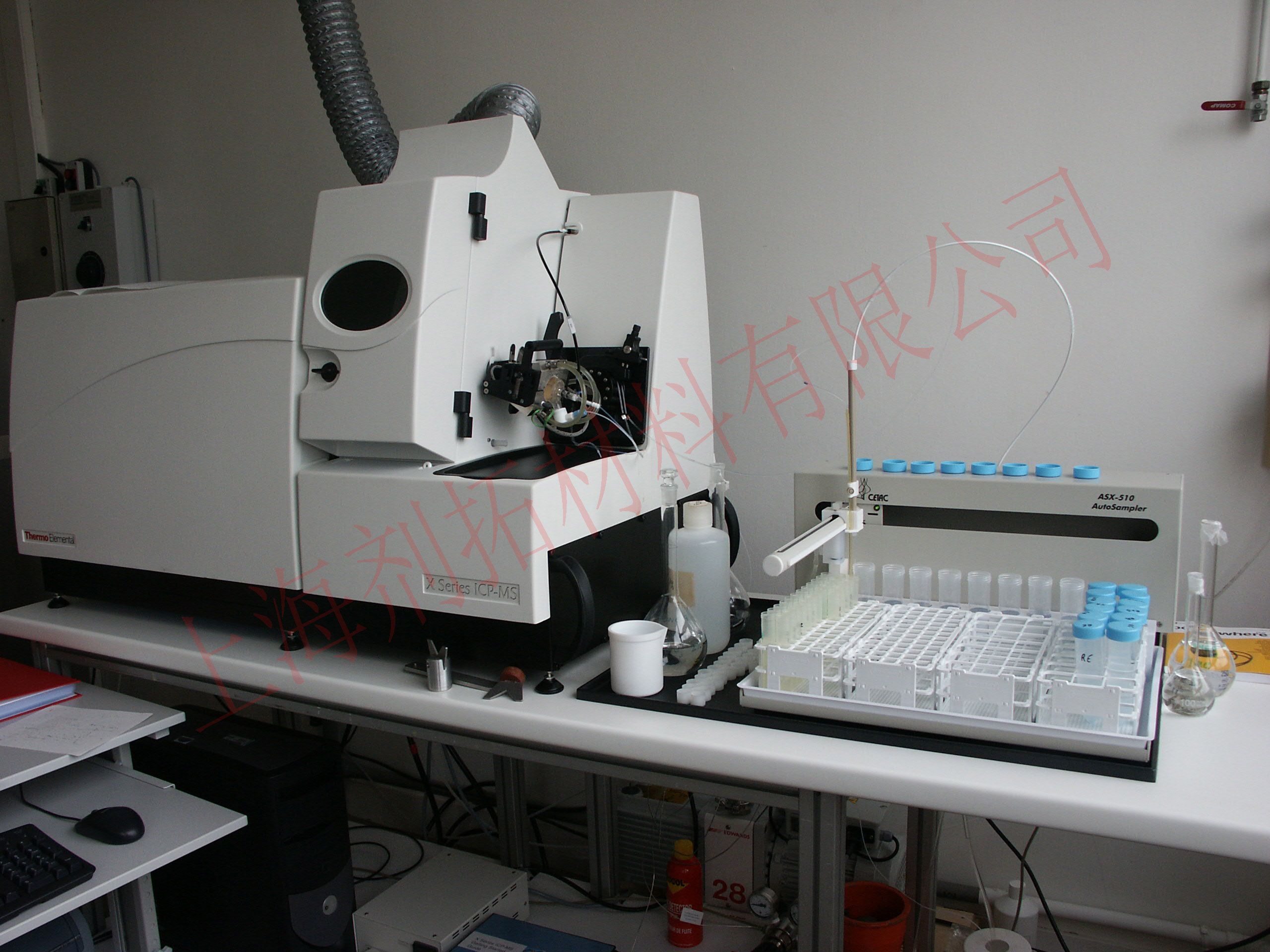Principle of ICP-MS
ICP-MS converts elements in samples into ions through an inductively coupled plasma (ICP) ion source, then separates and detects ions by mass spectrometer based on their mass-to-charge ratio (m/z). Finally, the element types and contents are determined according to the m/z and intensity of ions.
Testing Principle
The testing principle of ICP-MS (Inductively Coupled Plasma Mass Spectrometry) is based on converting samples into plasma ions, followed by separation and detection via mass spectrometry to achieve qualitative and quantitative analysis of elements. It identifies the composition and content of elements in substances by measuring the wavelength and intensity of characteristic spectra emitted by gaseous atoms or ions of each chemical element after excitation, suitable for trace element analysis of most metals and a few non-metals such as silicon, phosphorus, and sulfur.
Instrument Model and Technical Parameters
- Instrument Model: Agilent 7500ce
- Technical Parameters:
- Sensitivity: Low mass Li(7): 50 Mcps/ppm
- Detection Limit: Low mass Be(9): 0.5 ppt; Medium mass In(115): 0.1 ppt; High mass Bi(209): 0.1 ppt
- Oxide Interference: CeO+/Ce+: 1.5% (7700x): 3.0% (7700s)
- Double Charge Interference: Ce2+/Ce+: 3.0
- Isotope Ratio Precision: RSD(107Ag/109Ag) 0.1%
- Mass Spectrometry Range: 2–260 amu
- Abundance Sensitivity: Low mass end: 5×10-7; High mass end: 1×10-7
Sample Submission Requirements and Notes
- Sample form: Liquid or solid, 100 mg to 5 g.
- Solubility: Completely soluble in common inorganic solvents (e.g., water, sulfuric acid, hydrochloric acid, nitric acid, aqua regia, etc.).
Testing Examples

Reference Standards
- ISO 17294-1:2007 "Water quality - Application of inductively coupled plasma mass spectrometry (ICP-MS)"
- ISO 22125-2:2019 "Water quality - Technetium-99 - Part 2: Test method using inductively coupled plasma mass spectrometry (ICP-MS)"
- ISO 20647:2015 "Infant formula and adult nutrition - Determination of total iodine - Inductively coupled plasma mass spectrometry (ICP-MS)"
- GB/T 30903-2014 "Inorganic chemical products - Determination of impurity elements - Inductively coupled plasma mass spectrometry (ICP-MS)"
- DB52/T 1695-2022 "Technical requirements and testing methods for on-line automatic monitoring system of heavy metals in water (ICP-MS method)"
- T/NAIA 0111-2022 "Determination of lead, cadmium, copper, and nickel in high-salt foods - Inductively coupled plasma mass spectrometry (ICP-MS)"

